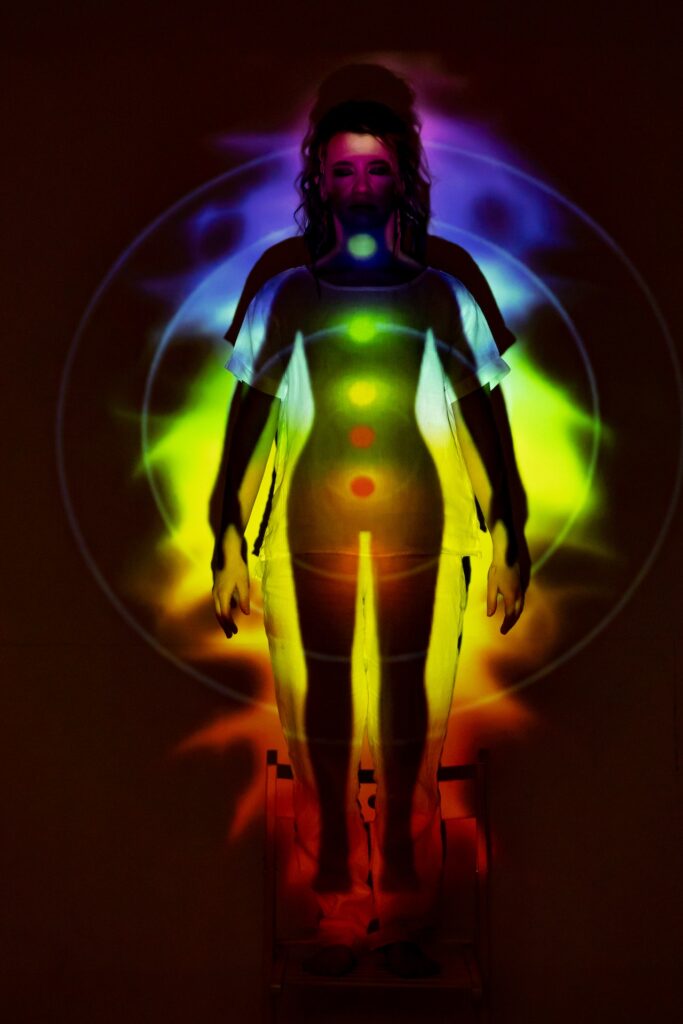Discover the transformative power of Ayahuasca effects on the mind, body, and spirit. Explore this ancient plant medicine’s immediate and long-term impacts, risks, and benefits for personal growth and healing.
Introduction to Ayahuasca
Definition and Origin Ayahuasca, derived from the Quechua words “aya,” meaning soul or spirit, and “huasca,” meaning vine or rope, is a psychoactive brew originating from the Amazon basin. It is traditionally prepared by indigenous peoples using the Banisteriopsis caapi vine and the leaves of the Psychotria viridis or Diplopterys cabrerana shrubs. This concoction has been utilized for centuries in shamanic rituals for spiritual exploration, healing, and divination.
Cultural Significance Ayahuasca holds immense cultural significance among various indigenous tribes of the Amazon rainforest. It is deeply ingrained in their spiritual and medicinal practices. It is considered a sacred sacrament that facilitates communication with the spirit world, enhances self-awareness, and promotes physical, emotional, and spiritual healing. The ceremonial use of Ayahuasca is integral to tribal identity, social cohesion, and the preservation of traditional knowledge and wisdom.
The Science Behind Ayahuasca Affects
Chemical Composition The potency of Ayahuasca stems from its unique chemical composition, primarily consisting of the beta-carboline alkaloids found in Banisteriopsis caapi, such as harmine and harmaline, which act as monoamine oxidase inhibitors (MAOIs). These compounds inhibit the breakdown of the tryptamine alkaloids in the Psychotria viridis or Diplopterys cabrerana leaves, notably dimethyltryptamine (DMT), allowing it to exert its psychoactive effects when ingested orally.
Neurological Impact Ayahuasca’s effects on the central nervous system are profound, primarily attributed to the interaction between its bioactive constituents and neurotransmitter systems, particularly serotonin. The ingestion of DMT stimulates serotonin receptors, leading to alterations in neural activity, including changes in perception, mood, cognition, and consciousness. Additionally, the modulation of other neurotransmitter systems, such as dopamine and glutamate, contributes to Ayahuasca’s diverse neurological effects.
Psychological Implications Ayahuasca elicits a broad spectrum of psychological experiences, ranging from reflective insights and emotional catharsis to profound spiritual revelations and ego dissolution. Various factors influence these effects, including set and setting, individual differences, and the ceremonial context. Research suggests that ayahuasca therapy shows promise in the treatment of various mental health conditions, such as depression, anxiety, addiction, and post-traumatic stress disorder, by promoting emotional processing, fostering self-acceptance, and facilitating psychological integration.
Immediate Effects of Ayahuasca
Sensory Perceptions The consumption of Ayahuasca induces alterations in sensory perception, intensifying visual, auditory, tactile, and proprioceptive experiences. Users often report vivid hallucinations, geometric patterns, enhanced colors, synesthetic phenomena, and a heightened sense of interconnectedness with the environment. These perceptual distortions are integral to the shamanic journey, facilitating visionary experiences and symbolic insights into the nature of reality and consciousness.
Emotional Responses Ayahuasca profoundly affects emotional processing, eliciting a range of affective states, from euphoria and bliss to fear and sadness. The brew can evoke buried emotions, unresolved traumas, and deeply ingrained patterns of thought and behavior, providing individuals with emotional release, catharsis, and inner healing. The therapeutic potential of Ayahuasca lies in its ability to facilitate the integration of suppressed emotions, promote emotional resilience, and foster a profound sense of empathy and compassion towards oneself and others.
Cognitive Changes Ayahuasca induces significant alterations in mental functioning, including disruptions in linear thinking, time perception, and self-awareness. Users often report experiencing a state of expanded consciousness characterized by enhanced introspection, insightfulness, and ego dissolution. These cognitive shifts enable individuals to gain a fresh perspective on their lives, beliefs, and relationships, fostering personal growth, self-discovery, and existential insight. However, Ayahuasca’s cognitive effects can also be disorienting and challenging, requiring a supportive and therapeutic environment for optimal integration and psychological well-being.

Long-term Effects and Benefits
Spiritual Growth and Insight
- Ayahuasca’s profound impact on spirituality: Ayahuasca is renowned for facilitating profound spiritual experiences, often leading to a deepened sense of connection with oneself, others, and the universe.
- Enhanced introspection and self-awareness: Regular consumption of Ayahuasca has been associated with heightened introspection, allowing individuals to explore their inner landscapes and gain insights into the nature of existence.
- Expanded consciousness and transcendental experiences: Many report transcendent experiences while under the influence of Ayahuasca, which can lead to a greater understanding of the interconnectedness of all things and a sense of unity with the cosmos. Learn more.
Psychological Healing
- Healing trauma and emotional wounds: Ayahuasca has shown promising results in the treatment of various mental health conditions, including PTSD, depression, and anxiety, by facilitating profound healing experiences and helping individuals confront and process past traumas.
- Resolving inner conflicts and negative patterns: Through its reflective and therapeutic effects, Ayahuasca can assist individuals in identifying and resolving deep-seated psychological issues, such as unresolved conflicts, self-limiting beliefs, and destructive behavioral patterns.
- Promoting emotional resilience and well-being: Long-term Ayahuasca use has been linked to improved emotional regulation, increased empathy, and greater overall psychological resilience, leading to enhanced well-being and a greater sense of inner peace. Learn more.
Behavioral Changes
- Positive shifts in lifestyle and habits: Ayahuasca ceremonies often catalyze profound behavioral changes, inspiring individuals to adopt healthier lifestyles, cultivate more meaningful relationships, and pursue their passions with renewed vigor.
- Increased compassion and altruism: Many Ayahuasca users report experiencing a heightened sense of compassion and interconnectedness with others, leading to greater empathy, altruism, and a desire to contribute positively to the world.
- Alignment with higher values and purpose: Ayahuasca can realign individuals with their core values and life purpose, motivating them to live authentically and harmoniously with their deepest aspirations and ideals.
Risks and Considerations
Potential Side Effects
- Physical discomfort and purging: Ayahuasca ceremonies can induce intense physical sensations, including nausea, vomiting, diarrhea, and dizziness, which are often referred to as the purging process and are considered integral to the healing experience.
- Psychological distress and disorientation: Some individuals may experience challenging psychological effects during an Ayahuasca journey, such as anxiety, paranoia, confusion, or a sense of ego dissolution, which require proper support and guidance to navigate safely.
- Interaction with medications and pre-existing conditions: Ayahuasca contains potent psychoactive compounds that can interact with certain drugs and exacerbate underlying health conditions, making it essential for individuals to disclose their medical history and seek professional guidance before participating in a ceremony.
Medical Precautions
- Screening and preparation: Before participating in an Ayahuasca ceremony, individuals should undergo thorough medical and psychological screening to ensure they are physically and mentally prepared for the experience and to identify any potential contraindications or risks.
- Experienced facilitation and supervision: Ayahuasca ceremonies should be facilitated by experienced and reputable shamanic practitioners or trained facilitators who can provide guidance, support, and a safe container for the experience, minimizing the risk of adverse reactions or psychological distress.
- Integration and aftercare: Proper integration and aftercare are essential to the Ayahuasca experience. They allow individuals to process and integrate their insights, emotions, and experiences in a supportive and nurturing environment and to receive any necessary follow-up care or support.
Legal and Ethical Concerns
- Legal status and regulation: The legal status of Ayahuasca varies depending on the country and jurisdiction, with some regions allowing its religious or ceremonial use under specific rules, while others prohibit or restrict its use altogether, raising legal and ethical questions regarding access, cultural appropriation, and indigenous rights.
- Cultural sensitivity and respect: Ayahuasca is deeply rooted in indigenous traditions and spiritual practices, and its widespread adoption by Westerners has raised concerns about cultural appropriation, exploitation, and the commodification of sacred ceremonies, highlighting the importance of approaching Ayahuasca with humility, respect, and cultural sensitivity.
- Environmental sustainability and conservation: The increasing demand for Ayahuasca has raised concerns about its impact on the environment, including deforestation, overharvesting of plant species, and habitat destruction, underscoring the need for sustainable harvesting practices, conservation efforts, and responsible stewardship of natural re

Final words: Navigating the Ayahuasca Experience
Integration and Reflection
- Incorporating Ayahuasca Insights into Daily Life: Reflecting on the experiences gained during an Ayahuasca journey and integrating them into one’s daily routines fosters personal growth and transformation.
- Emotional Processing: Taking time to process the emotions and insights gained from an Ayahuasca experience allows individuals to understand themselves and their relationships better.
- Journaling and Meditation: Practices like journaling and meditation can aid the integration process by providing a space for introspection and self-expression.
Continuing Research and Understanding
- Staying Informed: Keeping up with the latest research and developments in Ayahuasca studies allows individuals to make informed decisions about their experiences and seek out reputable sources of information.
- Engaging with Community: Joining online forums, attending conferences, and participating in community discussions provide opportunities to share experiences, learn from others, and contribute to the collective understanding of Ayahuasca.
- Supporting Ethical Practices: Supporting research initiatives and organizations dedicated to the safe and responsible use of Ayahuasca helps ensure its continued availability and legality.
Personalized Approach for Safe and Meaningful Experiences
- Setting Intentions: Clarifying intentions before an Ayahuasca ceremony helps individuals focus their energy and attention on specific areas of personal growth or healing.
- Choosing a Reputable Retreat Center: Researching and selecting a reputable retreat center with experienced facilitators and a robust safety protocol ensures a supportive and secure environment for the Ayahuasca experience.
- Listening to Body and Mind: Tuning into one’s body and intuition during an Ayahuasca journey allows individuals to navigate the experience safely and comfortably.
- Seeking Integration Support: Seeking guidance from therapists, integration coaches, or spiritual mentors can provide valuable support and guidance in processing and integrating Ayahuasca experiences into daily life.



